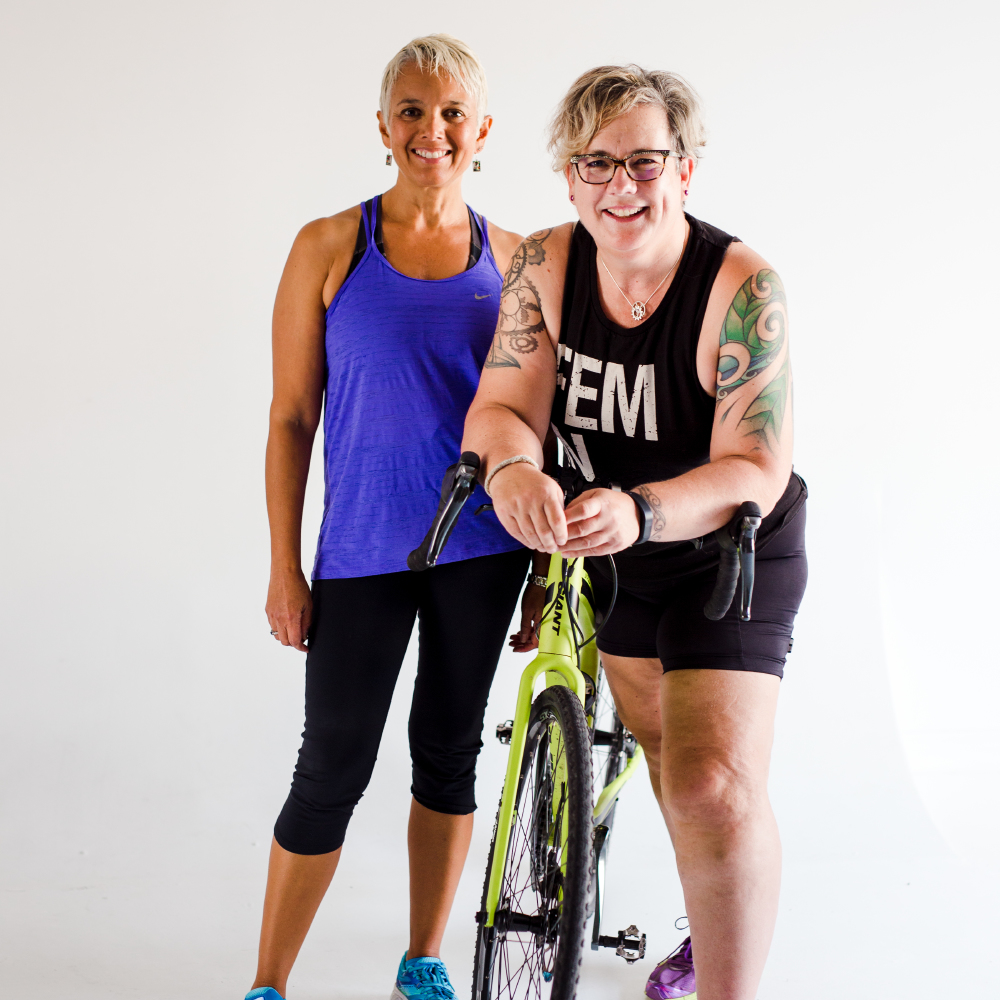In our new book Fit at Mid-Life: A Feminist Fitness Journey, we offer and promote the idea of fitness as a feminist issue. Women especially, but also men, can benefit from approaching their fitness pursuits from a more inclusive, feminist perspective that accepts and celebrates diverse body types. We have freed ourselves from oppressive attitudes about exercise and fitness that make it a dreaded obligation rather than a joyful part of our lives and you can too.

Samantha Brennan and Tracy Isaacs by Ruth Kivilahti
You might ask, “How?”
Here are five ways to think of fitness in these more liberating terms and, in so doing, shift your approach to your fitness activities so they become empowering and joyful.
It’s not all about being thin. Contemporary fitness culture is obsessed with thinness. We’ve been conditioned to equate looking ‘fit’ with looking ‘thin.’. This focus on weight loss and on feminine disciplinary beauty practises make fitness ripe for feminist critique.
A feminist alternative approach to fitness might to be focus on other ways to measure your fitness successes. How about using your running time or how much you can bench press? Health markers like blood pressure and heart rate matter more than weight or size. Or for you, maybe all measuring feels bad. In that case focus instead on how you feel. Do you have more energy to face the day? Are you sleeping better at night?
Where is the diversity in fitness images? The images that dominate popular fitness culture exclude so many people, as if only thin, young, white, nondisabled people work out or play sports. Our feminism is about making room for all bodies.
A feminist alternative is to find some fitness role models that go beyond that narrow ideal. Even Olympic athletes have a wide range of body types and don't look like fitness models. Watch the Paralympics. Find some older women doing the sports that excite you. Broaden your own perspective on fitness.
The many benefits of getting more active. Being fit might or might not make you thin but either way women who workout have more body confidence, less stress, and experience other kinds of psychological benefits. A culture in which women don’t have time to work out, or in which women don’t feel comfortable exercising is one which denies these goods to women. A feminist take on fitness connects the gains in physical activity to women's successes outside the gym.
Say no to sexism and the objectification of female athletes. Even super serious athletes are often treated as if their main reason for being was to look good for men. Call or write your local media when you see women athletes treated this way. Watch women's sporting events and listen to the commentary and media coverage, the comments about bodies, fashion choices, the requests to the athletes to smile or “twirl.”
Let’s take women more seriously as athletes.
Who knows what women can do? Help us find out! As athletes, women have yet to reach their potential. In a culture in which young girls are often discouraged from playing sports, where it’s thought to be more important that they look good instead of anything else, we just have no idea how fast and how strong women can be. If we think of fitness and sport as a feminist frontier, then we will have more and more opportunities to see just what women can do. We encourage you to join in this exciting experiment.

Samantha Brennan and Tracy Isaacs are co-authors of Fit at Mid-life: A Feminist Fitness Journey, published by Greystone Books (£12.99).

